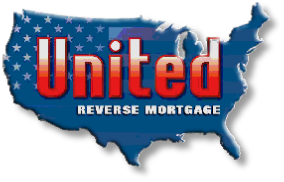

 CONTACT US
CONTACT US




|
Q: What is a Reverse Mortgage? Answer: A reverse mortgage is a loan available to homeowners, 62 years or older, that allows them to convert part of the equity in their homes into cash. The product was conceived as a means to help retirees with limited income use the accumulated wealth in their homes to cover basic monthly living expenses and pay for health care. However, there is no restriction how reverse mortgage proceeds can be used. The loan is called a reverse mortgage because instead of making monthly payments to a lender, as with a traditional mortgage, the lender makes payments to the borrower.The borrower is not required to pay back the loan until the home is sold or otherwise vacated. As long as the borrower lives in the home he or she is not required to make any monthly payments towards the loan balance. The borrower must remain current on property taxes, homeowners insurance and homeowners association dues (if applicable). |
|
Q: Does my home qualify for a Reverse Mortgage? Answer: Eligible property types include single- |
|
Q: Are there any special requirements to get a reverse mortgage? Answer: You must own a home, be at least 62, and have enough equity in your home. There are no medical requirements. Lenders must conduct a financial assessment of every reverse mortgage borrower to ensure he or she has the financial capacity to continue paying mandatory obligations, such as property taxes and homeowner's insurance, as stipulated in the Loan Agreement. If a lender determines that a borrower may not be able to keep up with property taxes and homeowner's insurance payments, they will be authorized to set- |
|
Q: What if I have an existing mortgage? Answer: You may qualify for a reverse mortgage even if you still owe money on an existing mortgage. However, the reverse mortgage must be in a first lien position, so any existing indebtedness must be paid off. You can pay off the existing mortgage with a reverse mortgage, money from your savings, or assistance from a family member or friend. For example, let's say you owe $100,000 on an existing mortgage. Based on your age, home value, and interest rates, you qualify for $125,000 under the reverse mortgage program. Under this scenario, you will be able to pay off ALL the existing mortgage and still have $25,000 left over to use as you wish. |
|
Q: Will I lose my government assistance if I get a reverse mortgage? Answer: A reverse mortgage does not affect regular Social Security or Medicare benefits. However, if you are on Medicaid or Supplemental Security Income (SSI), any reverse mortgage proceeds that you receive must be used immediately. Funds that you retain count as an asset and could impact eligibility. For example, if you receive $4,000 in a lump sum for home repairs and spend it all the same calendar month, everything is fine. Any residual funds remaining in your bank account the following month would count as an asset. If the total liquid resources (including other bank funds and savings bonds) exceed $2,000 for an individual or $3,000 for a couple, you would be ineligible for Medicaid. To be safe, you should contact the local Area Agency on Aging or a Medicaid expert. |
|
Q: Under what circumstances should I not consider a reverse mortgage? Answer: Because of the up front costs associated with a reverse mortgage, if you intend to leave your home within 2 to 3 years, there may be other less expensive options to consider, such as home equity loans, no- |
|
Q: What are My Payment Plan Options? Answer: You can choose to receive the money from a reverse mortgage all at once as a lump sum, fixed monthly payments either for a set term or for as long as you live in the home, as a line of credit, or a combination of these. |
|
Q: How Much Money Can I Get? Answer: The amount of funds you are eligible to receive depends on your age (or the age of the youngest spouse when there is a couple), appraised home value, interest rates, and in the case of the government program, the FHA lending limit, which is currently $636,150. If your home is worth more, then the amount of funds you may be eligible for will be based on the $636,150 loan limit. In general, the older you are and the more valuable your home (and the less you owe on your home), the more money you can get. During the first 12 months after closing, a borrower cannot access more than 60 percent of the available loan proceeds. In month thirteen, a borrower can access as much or as little of the remaining funds as he or she wishes. There are exceptions to the 60 percent rule. If you have an existing mortgage, you may pay it off and take an additional 10 percent of the available funds, even if the total amount used exceeds 60 percent. |
